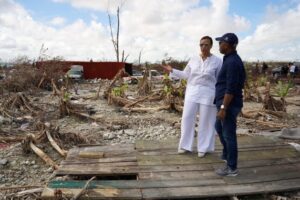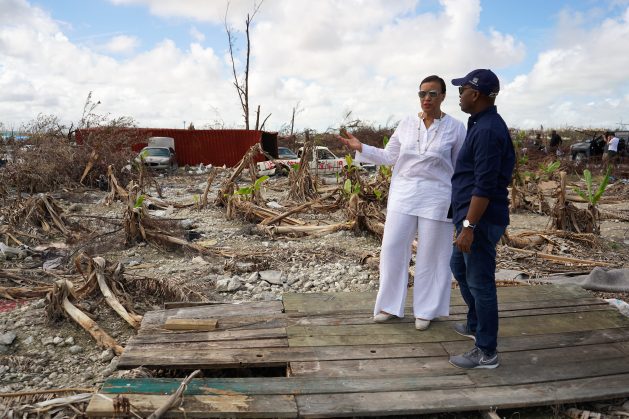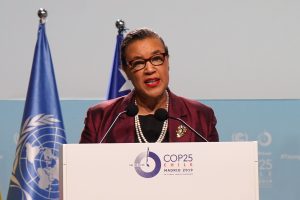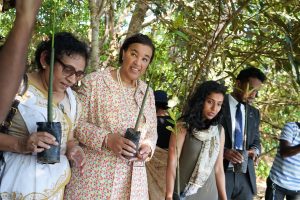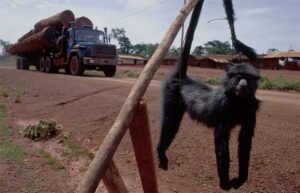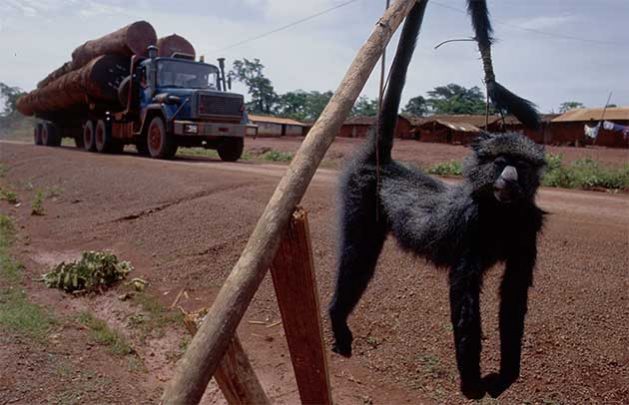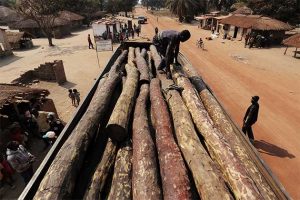
Biodiversity, Civil Society, Climate Action, Climate Change, Conferences, Conservation, Environment, Featured, Global, Headlines, Natural Resources, TerraViva United Nations

President Macron and Harrison Ford among speakers at the Congress Opening Ceremony. Credit: IUCN Ecodeo
– The world’s most influential conservation congress, meeting for the first time since the onset of the COVID-19 pandemic, has issued its starkest warning to date over the planet’s escalating climate and biodiversity emergencies.
“Humanity has reached a tipping point. Our window of opportunity to respond to these interlinked emergencies and share planetary resources equitably is narrowing quickly,” the International Union for Conservation of Nature (IUCN) declared in its Marseille Manifesto at the conclusion of its World Conservation Congress in the French port city.
“Our existing systems do not work. Economic ‘success’ can no longer come at nature’s expense. We urgently need systemic reform.”
The Congress, held every four years but delayed from 2020 by the pandemic, acts as a kind of global parliament on major conservation issues, bringing together a unique combination of states, governmental agencies, NGOs, Indigenous Peoples’ Organisations and affiliate members. Its resolutions and recommendations do not set policy but have shaped UN treaties and conventions in the past and will help set the agenda for three key upcoming UN summits – food systems security, climate change and biodiversity.
“The decisions taken here in Marseille will drive action to tackle the biodiversity and climate crises in the crucial decade to come,” said Dr Bruno Oberle, IUCN Director-General.
“Collectively, IUCN’s members are sending a powerful message to Glasgow and Kunming: the time for fundamental change is now,” he added, referring to the UN Climate Change Conference (COP26) to be hosted by the UK in November, and the UN Convention on Biological Diversity (COP 15) to be held in China in two parts, online next month and in person in April-May 2022.
The week-long IUCN Congress, attended in Marseille by nearly 6,000 delegates with over 3,500 more participating online, was opened by French President Emmanuel Macron who declared: “There is no vaccine for a sick planet.”
He urged world leaders to make financial commitments for conservation of nature equivalent to those for the climate, listing such tasks as ending plastic pollution, stopping the deforestation of rainforests by eradicating their raw materials in supply chains, and phasing out pesticides.
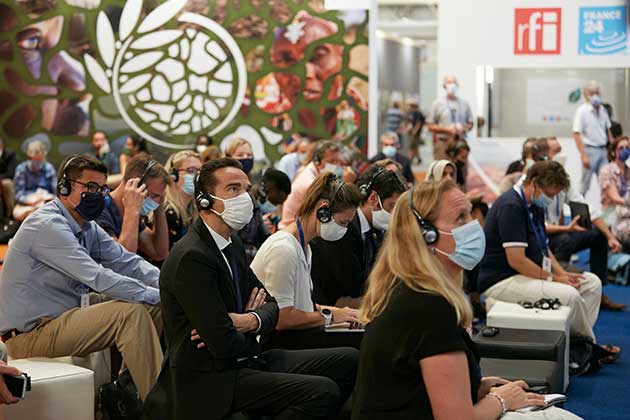
Congress participants during an Exhibition event of the Sixth Global Coral Reef Monitoring Network. Credit: IUCN Ecodeo
China’s prime minister, Li Keqiang, said in a recorded message that protecting nature and tackling the climate crisis were “global not-traditional security issues”.
While noting that some scientists fear that the climate emergency is “now close to an irreversible tipping point”, the Marseille Manifesto also spoke of “reason to be optimistic”.
“We are perfectly capable of making transformative change and doing it swiftly… To invest in nature is to invest in our collective future.”
Major themes that dominated the IUCN Congress included: the post-2020 biodiversity conservation framework; the role of nature in the global recovery from the pandemic; the climate emergency; and the need to transform the global financial system and direct investments into projects that benefit nature.
Among the 148 resolutions and recommendations voted in Marseille and through pre-event online voting, the Congress called for 80 percent of the Amazon and 30 percent of Earth’s surface—land and sea—to be designated “protected areas” to halt and reverse the loss of wildlife.
Members also voted overwhelmingly to recommend a moratorium on deep-sea mining and reform the International Seabed Authority, an intergovernmental regulatory body.
“The resounding Yes in support for a global freeze on deep seabed mining is a clear signal that there is no social licence to open the deep seafloor to mining,” Jessica Battle, leader of the WWF’s Deep Sea Mining Initiative, said, quoted by AFP news agency.
The emergency motion calling for four-fifths of the Amazon basin to be declared a protected area by 2025 was submitted by COICA, an umbrella group representing more than two million indigenous peoples across nine South American nations. It passed with overwhelming support.
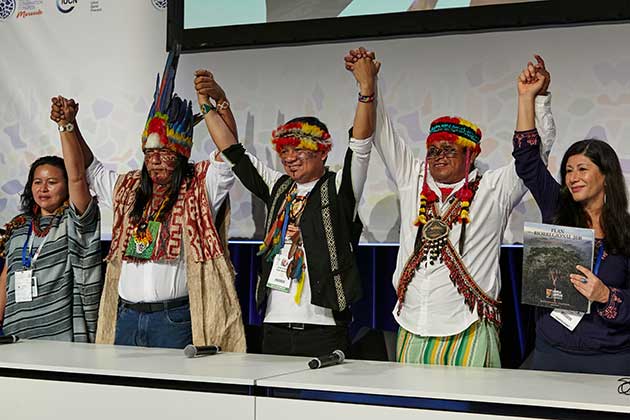
Representatives from COICA and Cuencas Sagradas present their bioregional plan for the Amazon during a press conference. Credit: IUCN Ecodeo
Jose Gregorio Diaz Mirabal, general coordinator of COICA and a leader of the Curripaco people in Venezuela, said the proposal was a “plan for the salvation of indigenous peoples and the planet”.
The Amazon has lost some 10,000 square kilometres every year to deforestation over the past two decades. Brazil is not an IUCN member and thus could not take part in the vote which runs against President Jair Bolsonaro’s agenda.
The five-page Marseille Manifesto makes repeated references to indigenous peoples and local communities, noting “their central role in conservation, as leaders and custodians of biodiversity” and amongst those most vulnerable to the climate and nature emergencies.
“Around the world, those working to defend the environment are under attack,” the document recalled.
Global Witness, a campaign group, reported that at least 227 environmental and land rights activists were killed in 2020, the highest number documented for a second consecutive year. Indigenous peoples accounted for one-third of victims. Colombia had the highest recorded attacks.
The resolution calling for 30 percent of the planet’s land and ocean area to be given protected status by 2030, said selected zones must include “biodiversity hotspots”, be rigorously monitored and enforced, and recognise the rights of indigenous peoples to their lands, territories and resources. The ‘30 by 30’ target is meant as a message to the UN biodiversity summit which is tasked with delivering a treaty to protect nature by next May.
Many conservationists are campaigning for a more ambitious target of 50 percent.
However, the 30 by 30 initiative, already formally backed by France, the UK and Costa Rica, is of considerable concern to some indigenous peoples who have been frequently sidelined from environmental efforts and sometimes even removed from their land in the name of conservation.
The IUCN Congress also released its updated IUCN Red List. The Komodo dragon, the world’s largest lizard, was reclassified from ‘vulnerable’ status to ‘endangered’, while 37 percent of shark and ray species are now reported to be threatened with extinction. Four species of tuna are showing signs of recovery, however.
Craig Hilton-Taylor, head of IUCN’s Head of Red List Unit, said the current rate of species extinctions is running 100 to 1,000 times the ‘normal’ or ‘background’ rate, a warning that Earth is on the cusp of the sixth extinction event. The fifth, known as the Cretaceous mass extinction event, occurred 65 million years ago, killing an estimated 78 percent of species, including the remaining non-avian dinosaurs.
One of the more controversial motions adopted – on “synthetic biology” or genetic engineering – could actually promote the localised extinction of a species. The motion opens the way for more research and experimentation in technology called gene drive. This could be used to fight invasive species, such as rodents, snakes and mosquitos, which have wiped out other species, particularly birds, in island habitats.
It was left to Harrison Ford, a 79-year-old Hollywood actor and activist, to offer hope to the Congress by paying tribute to young environmentalists.
“Reinforcements are on the way,” he said. “They’re sitting in lecture halls now, venturing into the field for the very first time, writing their thesis, they’re leading marches, organising communities, are learning to turn passion into progress and potential into power…In a few years, they will be here.”
Andrea Athanas, senior director of the African Wildlife Foundation, affirmed there was a sense of optimism in the Marseille air, in recognition that solutions are at hand.
“Indigenous systems were lauded for demonstrating harmonious relationships between people and nature. Protected areas in some places have rebounded and are now teeming with wildlife. The finance industry has awoken to the risks businesses run from degraded environments and are calculating those risks into the price of capital.
“Crisis brings an opportunity for change, and the investments in a post COVID recovery present a chance to fundamentally reshape our relationship with nature, putting values for life and for each other at the centre of economic decision-making,” he told IPS.
View the complete Marseille Manifesto here.

